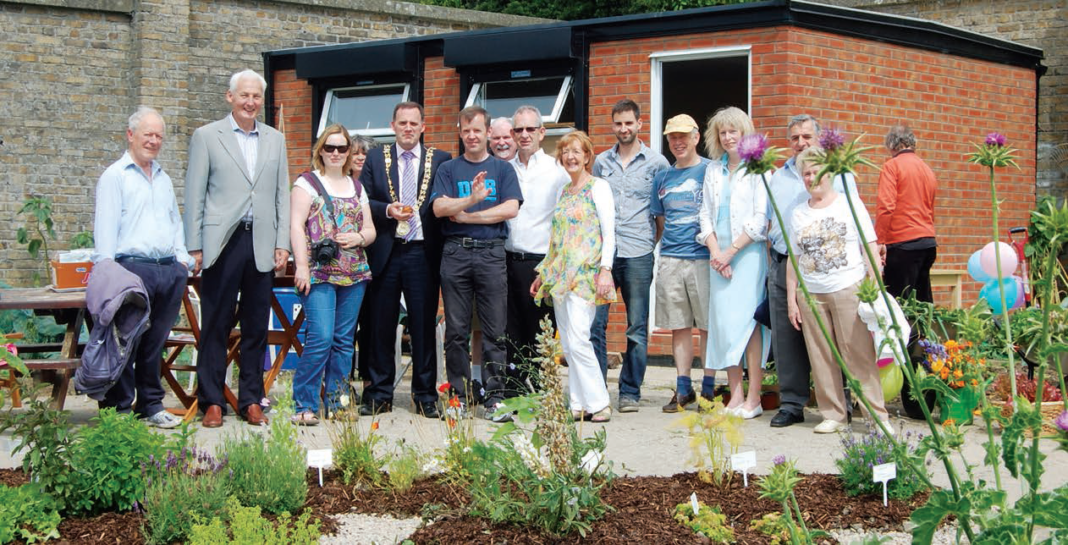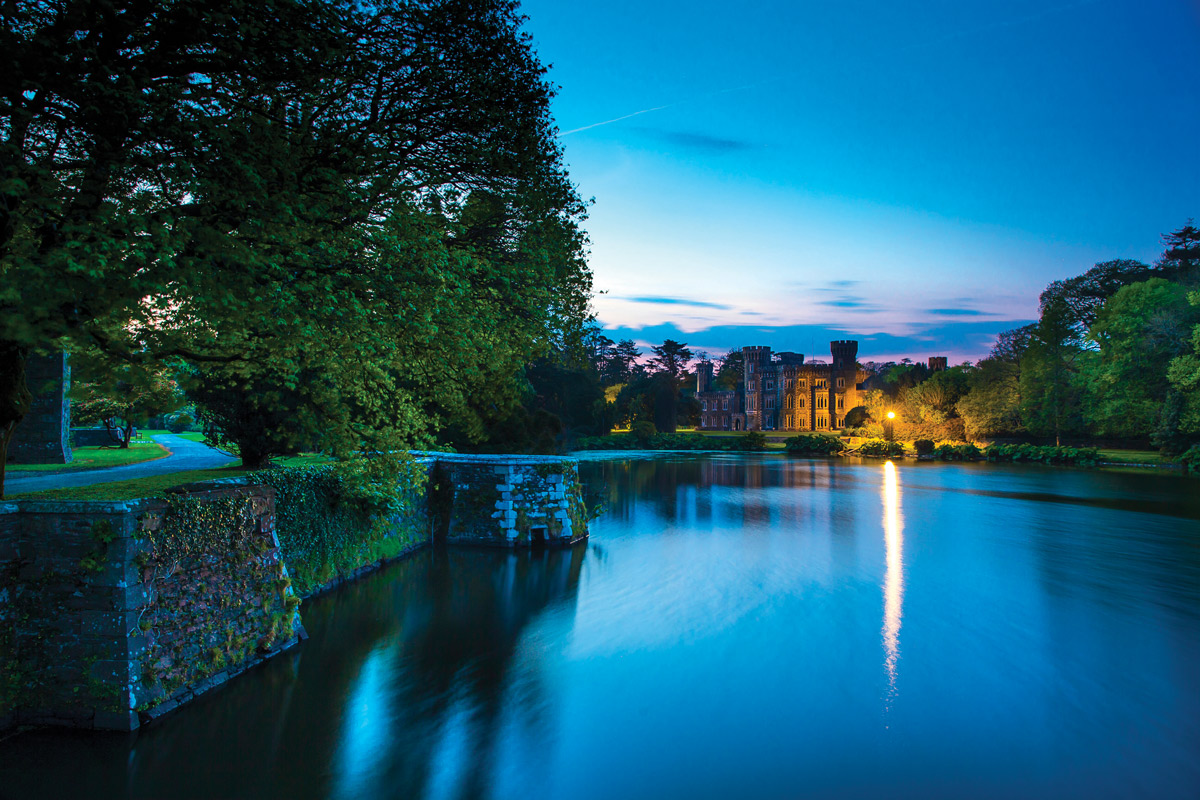Noel McEvoy, Dublin City Council Parks Superintendent explains how the walled garden in St Anne’s Park, Dublin provided the impetus for an important social movement
Allotments and community gardens are without doubt important social assets and by ensuring they are properly managed and maintained, they will continue to be a resource for generations to come.
In 2008 Dublin City Council Parks and Landscape Services (DCCPLS) was deciding what to do with the old walled garden in St Anne’s Park. The garden was originally used by the Guinness family as their kitchen garden to provide fresh fruit and vegetables. During the late 90s and early noughties when several historic gardens were being restored this option was considered very seriously. However, in the case of St Anne’s we felt we would be creating yet another show garden, another static museum piece. The approach DCC took was to restore the garden but, in line with our philosophy, for the public rather than for the privileged.
Demand for allotments has been growing steadily for the last decade and there is now a considerable waiting list. The City Council has a history of providing allotments dating back before independence when city allotment schemes were set up in Belfast and Dublin to provide people with land to grow food for their families. Following the introduction of government regulations in 1917, the number of allotments increased in an attempt to boost wartime food production. However, by 1949 the demand for allotments exceeded supply, as it does today. While the motivation in the middle of the last century related to hunger, I am glad to say that today the vast majority of people are growing their own to simply lead a healthier life.
The provision of allotments is a statutory service for local authorities, and the Planning and Development Act also allows for local authorities to indicate in their Development Plans an intention to reserve land for their use and cultivation.
Open space is becoming intrinsically more important within our communities due to growing development pressures. A smaller proportion of dwellings are likely to have access to a garden and if a garden does exist, it is of a size that does not allow meaningful production of food for the table. Because properties will not provide gardens of adequate size for growing, allotments and community gardens will become vital community resources. From research and discussion with local authorities in England and particularly London, the most successful and energised allotments were allotment schemes devolved to a local allotment community.
Therefore, it was decided from the very beginning that the allotment gardens in St Anne’s Park were to be driven by the allotment gardeners, with the DCCPLS retaining a veto for major decisions.
There is little doubt that, when successfully implemented, self-management schemes ensure greater control of a site by allotment holders and tend to work to the benefit of the site. The Parliamentary Under-Secretary of State expressed support for the practice, noting that “self-management at that very local level is almost always a good idea.” DCC believes that self-management fulfills the twin aims of ensuring greater control of a site by allotment holders and also reducing a local authority’s administrative responsibilities. We recommend that all local authorities examine the potential for self-management of their allotment sites.
Using a devolved model, DCCPLS made the site ready and created a layout that would utilise the space to its best advantage. Unfortunately, the financial crash arrived and all monies destined for the project vanished. The only monies we had for the project were the letting fees. However, this did not prove to undermine the project, in fact, it galvanised plot holders to make it happen. The walled garden was to become a work in progress driven by the needs of the plot holders and so it continues today. Because of the nature of the project, volunteers were easily secured, an allotment committee was formed and social media was engaged. The project became the impetus for similar projects in other parks, and in turn, was used as a template for DCC Community Section to provide allotments on unused lands belonging to Dublin City Council around the city.
| Community resource gardening is a great equaliser, bringing people together from all age groups and social backgrounds around a common interest. The activity lends itself to cooperation. Once you enter the walled garden as a pot holder, you are the same as anyone else, your place in the community is only dictated by how good you are as a gardener.
Working an allotment provides a healthy physical recreation for all people, and has therapeutic value as a treatment for stress, which to some extent is a result of the increased density of urban development. The opportunities to enjoy quiet relaxation such as that offered by allotment gardening and physical activity in a creative way are likely become increasingly important. The provision of allotments and community gardens in well managed public parks and open spaces make an important contribution to the quality of people’s lives within the city, and in creating and maintaining healthy neighbourhoods and sustainable communities. Properly maintained, sensitively managed, organic allotments can provide a protected environment for wildlife to thrive by providing a valued habitat for flora and fauna. Ten years on, the excitement and energy of our allotment projects have not diminished, if anything it has become established, and now the policy of Dublin City Council. Stating ‘Where possible, provision should be made for allotments within the city landscape by using neglected and derelict sites within easy reach of the community’, the City Council recognises that properly managed and maintained allotments are important social assets allowing sustainable food production, community involvement and health. Following best practice, they should be at the forefront of local government agendas. IT IS THE OBJECTIVE OF DUBLIN CITY COUNCIL TO PROMOTE ALLOTMENT GARDENING WITHIN THE COMMUNITY AS FOLLOWS:● By revisiting the role, purpose and meaning of allotments to local communities and integrating them into Dublin City Council’s wider objectives for sustainable development LA 21, open space, biodiversity, healthy living and community development;
|
“Allotments and community gardens are without doubt important social assets and by ensuring they are properly managed and maintained, they will continue to be a resource for generations to come” |
As innocent as it is, community gardening represents a tangible nature-focused solution to climate change: it reduces our negative impact on the environment.
Think about it. The community has a supply of organically grown food on its doorstep, with all waste recycled. What we have here is a non-polluting project with a next to zero carbon footprint, leaving no legacy of waste, a sustainable model to be reproduced countrywide.
Such a model is the future for our cities. Proof exists in countries such as Cuba which was forced to reevaluate its food production. Now, all their green vegetables and fruit are grown organically in what are by and large community gardens, supplying a population of 11.48m people.
The simple acts of growing plants and providing nutrition for the family subtly change one’s outlook on the world. You have a tangible connection with the soil and begin to realise that proper organic gardening is a contract of give and take: you care for the earth and in return, it cares for you. It is as simple and as profound as that.
Community gardens and allotment gardens are small but mighty, as witnessed by the lengths of waiting lists for municipal allotments in our cities and towns.
It will be interesting to see how this will affect the horticultural industry in Ireland. Perhaps the way forward is to encourage people’s integration into the subject of horticulture as part of their lives, as opposed to a bought and sold commodity. There are indeed interesting and challenging times ahead for the industry. ✽






